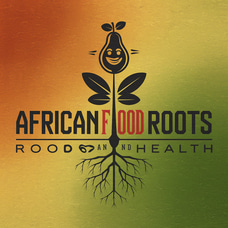
Discover Food Origins
Explore the roots of food for healthier eating and preventative health insights.
Write your text here...
Discover the Origins of Food
Join us on a journey to uncover the real origins of food, promoting healthy eating and preventative health for a better lifestyle.


150+
15
Trusted by Experts
Healthy Choices
Food Origins
Discover the roots of food for healthier eating and wellness.
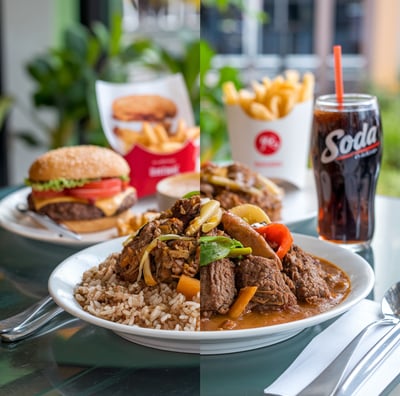

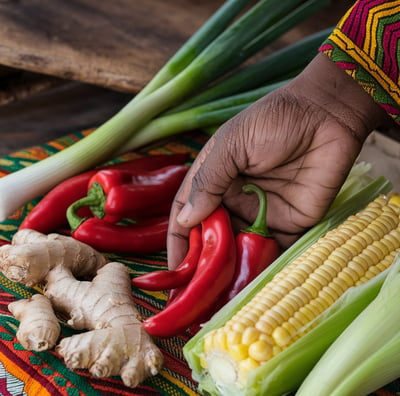

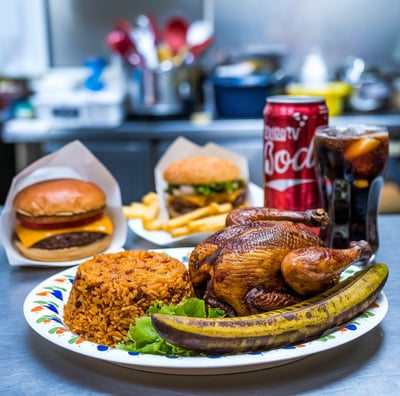

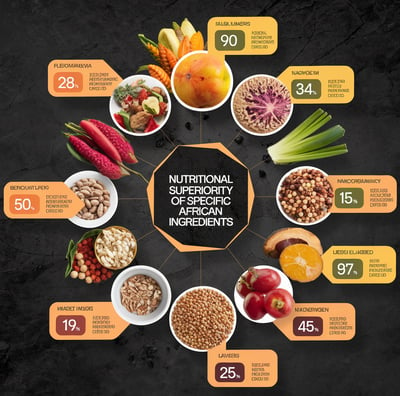

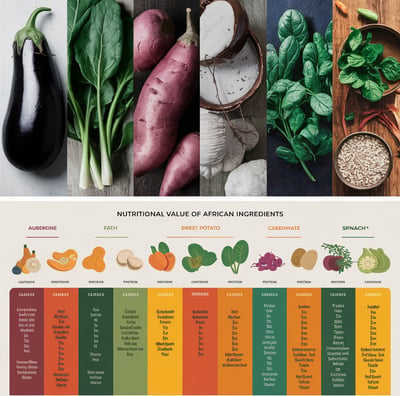

the storyAre We Losing Our Food Identity? A Call to Reconnect with Our Roots
In the rhythm of modern life—fast food, quick fixes, imported flavors—it’s easy to forget that food is more than just fuel. It is memory, identity, and culture served on a plate. For many Africans, both on the continent and in the diaspora, the disconnection from our traditional foodways is becoming increasingly evident. We are losing not just recipes—but stories, rituals, and a sacred connection to the land and our ancestors.
🍽️ What Is Food Identity?
Food identity is how we express who we are through what we eat. It’s:
The way millet porridge whispers of grandma’s early morning fires.
The comfort of a shared bowl of matoke, egusi, injera, or jollof at family gatherings.
How spices, methods, and ingredients reflect not only where we come from but how we relate to nature, healing, and each other.
The communal joy of sharing ugali and sukuma wiki in Kenya.
The healing power of bitter leaf soup in Nigeria.
The sacredness of teff in Ethiopian fasting traditions.
When we stop cooking our traditional meals, when we substitute everything with processed imports, when we forget what our people used to eat—we lose a piece of our cultural soul.
🚧 Why Are We Losing It?
Several forces are at play, chipping away at the value and visibility of our native foods:
1. Globalization & Colonial Hangovers
Western food systems have dominated, pushing convenience over culture, often marketed as "superior." The influx of Western diets isn't just a cultural shift; it's an economic battleground. Heavily marketed and often subsidized, processed Western foods can appear cheaper, pushing local producers out of the market. This undermines our agricultural economies and creates a dependency on foreign food systems.
Our minds were conditioned to believe imported is better, a lingering effect of colonial brainwashing that associates traditional African foods with "poverty" or "backwardness."
2. Urbanization & Convenience Culture
As we move to cities, traditional ingredients like bambara nuts, millet, or baobab become harder to access.
It's often easier to grab fast food than to prepare fufu made from cassava or pounded yam from scratch.
3. Media & Social Influence
Social media often glorifies foreign dishes (think sushi, pizza, burgers) while African cuisine is frequently relegated to "exotic" status.
Many young Africans know more about avocado toast than about injera from teff or ugali from maize or sorghum.
4. Economic Pressures
Fast food and refined products often appear cheaper and more available.
Imported refined foods (like white rice and wheat flour) are often subsidized, making them cheaper than local staples like sorghum or yam.
Small-scale farmers struggle to compete with multinational agribusinesses.
🌱 Why It Matters
Losing our food identity is about more than nostalgia. It's about:
1. Health & Economic Powerhouse
Traditional African foods are nutrient-rich, healing, and naturally whole—perfectly suited for today’s wellness trends. By emphasizing the superior nutritional profiles – the rich fiber, diverse micronutrients, and lower levels of processed sugars and unhealthy fats – we can create a demand for our indigenous ingredients. This demand can empower local farmers, create value-added industries, and position African foods as premium choices in both local and global markets, directly competing with less healthy Western alternatives. Think of it: our health is our wealth, and our traditional foods are a key to unlocking both. Soups thickened with egusi seeds, or leafy greens like those from cowpea plants, are prime examples of this nutritional wealth.
2. Sustainability & Food Sovereignty
Indigenous farming practices and local crops (millet, fonio, cassava) are more resilient and eco-friendly.
Supporting local farmers reduces reliance on exploitative food systems.
3. Economic Empowerment
Reviving our food systems can create jobs, export products, and build pride.
Africa’s superfoods (baobab, moringa, hibiscus) are in global demand—why let others profit from what’s ours?
4. Cultural Continuity
Our children need to know the taste and stories of their roots. Culture isn’t just taught—it’s eaten.
Food is a living archive. When we lose our dishes, we lose ancestral knowledge.
🔄 How Do We Reconnect?
It's time to actively reclaim our culinary heritage and strategically leverage its strengths:
Learn the Stories Behind the Foods: Every dish has a story. Whether it’s the significance of tamarind in childbirth rituals or the wisdom behind fermented sorghum for digestion—go beyond taste and dig into history. Action Step: Interview elders, read food anthropology books, or watch documentaries like High on the Hog.
Cook With Intent (At Least Once a Week): Choose to cook and share traditional meals regularly. Make them a part of your home, celebrations, and daily routines. Pro Tip: Turn it into a family ritual—cook together, share stories. Start simple: jollof rice, ndolè, or doro wat.
Document and Share Recipes: Talk to elders. Write down their methods. Create content. Start a food diary or blog. Your documentation might become the preservation someone else needs. Action Step: Record your grandmother’s pepper soup method or your aunt’s secret palm nut technique. Start a blog, TikTok series, or community cookbook.
Grow What You Can (Even in a Pot!): Even if it’s a small herb garden with African basil or okra—reclaiming even a small part of our traditional agriculture is a spiritual act. Bonus: Join a community garden focused on indigenous crops. Consider planting cowpeas or even African eggplant in your garden.
Support Local and Indigenous Food Brands: Buy from farmers, women cooperatives, and businesses reviving African ingredients. Each purchase is a vote for our culture and our economy. Look for brands utilizing ingredients like baobab powder or promoting the use of marula oil.
Teach the Younger Generation: Let your children cook with you. Tell them the significance of each food. Turn the kitchen into a storytelling space. Show them how to prepare a simple dish using bambara beans or pigeon peas. Use food to teach geography, history, and science.
Market Our Health Advantage: We need to actively promote the health benefits of our traditional foods. This includes research, nutritional labeling, and compelling storytelling that highlights how these foods contribute to well-being and can be a smarter choice than many processed Western options. Let's arm consumers with the knowledge to make informed decisions that benefit their health and our local economies. Imagine fonio becoming as popular as quinoa, or moringa powder being a staple in health smoothies worldwide.
🌍 The Global Appeal of African Food
There’s a growing interest worldwide in ancestral foods, holistic health, and sustainability. African food is poised to lead this conversation. We’re not just reviving our identity for ourselves—we’re showing the world the depth of our wisdom, diversity, and flavor.
Fonio is the next quinoa.
Tigernut milk rivals almond milk.
Dawadawa is a natural umami powerhouse.
We’re not just preserving culture—we’re leading a global food revolution that can be economically empowering and health-promoting.
❤️ Final Thought: Taste Our Identity and Reclaim Our Power
This isn’t just a call to cook more traditional meals. It’s a call to remember who we are, to heal through our roots, and to pass on something real, something powerful—something that nourishes both body and soul, and strengthens our economic fabric. Our food is our legacy, and it's a powerful tool in reclaiming our narrative and our prosperity. Let’s not lose it. Let’s make our kitchens a site of resistance and a source of economic empowerment. Let’s taste our identity and reclaim our power, one delicious and nutritious meal at a time..
Get in Touch with Us
We'd love to hear your thoughts on healthy eating!


